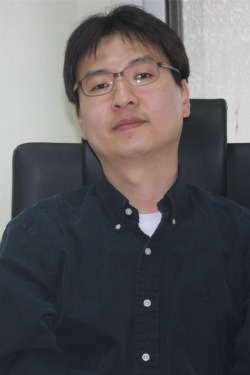

The dynamic nature of South Korean politics has been most evident in the roles of online civic storytellers—those who are both willing and capable to talk about civic issues online—in the restructuring of media and political environments. The influence of online storytellers on the Korean media and political environments was mainly built on public distrust of the mainstream media. The Korean mainstream news media are heavily criticized by Koreans, especially those from the 486 generation who are still in their 40s, stayed in college during the 1980s, and were born in the 1960s, for their partisanship and very conservative contents. The strong sense of distrust in the mainstream news media and the need for alternative media provide the contextual backdrop for the active roles of online storytelling in media and politics. In short, new communication technology is a means to provide the public with space to share their own stories through their own voices while bypassing suspiciousmainstream news media.
Expectations for the role of new communication technology in Korean politics are higher than any other time, as the season of politics has returned to South Korea--the general election is just around the corner and the presidential election is scheduled in the winter of 2012. In the mayoral election for the city of Seoul held last year, which has a significant implication for this year’s election, social media such as Twitter and Facebook has been proved effective in empowering the electorate. A recent phenomenon in which South Korea is in the grip of a weekly podcast of conversations between four middle-aged political commentators, called Naneun Ggomsuda, or NaGomSu for short, also shows how dynamic this year’s elections will be. It is not difficult to imagine that new media will play an important role as a political tool to share political stories, express political views, discuss a variety of political issues, and attempt to mobilize others to participate in political actions including voting.
However, the younger generation who are now in their twenties and thirties is very different from the older generations in Korea, including the 486 generation, in many respects. They are more liberal, more individualistic, yet also very nationalistic. In other words, this post Cold-war generation has embraced two seemingly contradictory values: individualism and nationalism. Furthermore, the youth are facing a chronic problem of low employment rate, which is often said to be an “excuse” for the youth’s political apathy. In addition, new media’s effects on youth politics depend on types of motivation (e.g., information seeking, getting advice, or having fun) that individual users bring to their media use. Therefore, rather than reverting to a technologically deterministic explanation (saying, for example, “the Internet offers technological capabilities to act in ways that were impossible with other old media”), it is better to consider the combined effect of technological, socio-political, and individual factors to explain Korean youth’s political engagement in the age of digital media.
What seems certain is that South Koreans will keep experimenting with the Internet as a tool for civic participation. No matter how bad the job market is, the younger generations will lead these experiments. They have gained collective political efficacy not only as a legacy from the preceding 486 generation but also from their own experience of having participated in civic and political activities facilitated by online civic storytelling. With their own sense of political efficacy, these technology-savvy young Koreans will continue to use the Internet and other new media technologies such as mobile communication technologies for civic and political engagement. This is why this year’s elections are critical not only for the future of the youth but for Korean politics.
Reference
Kim, K. S. & Kim, Y-. C. (2007). New and old media uses and politicalengagement among Korean adolescents. Asian Journal of Communication, 17(4), 342-361.
By Kim Kyun-su, Associate Professor, Dept. of Communication
[Special Report Sub1]
김균수 교수
tribune@cnumedia.com

